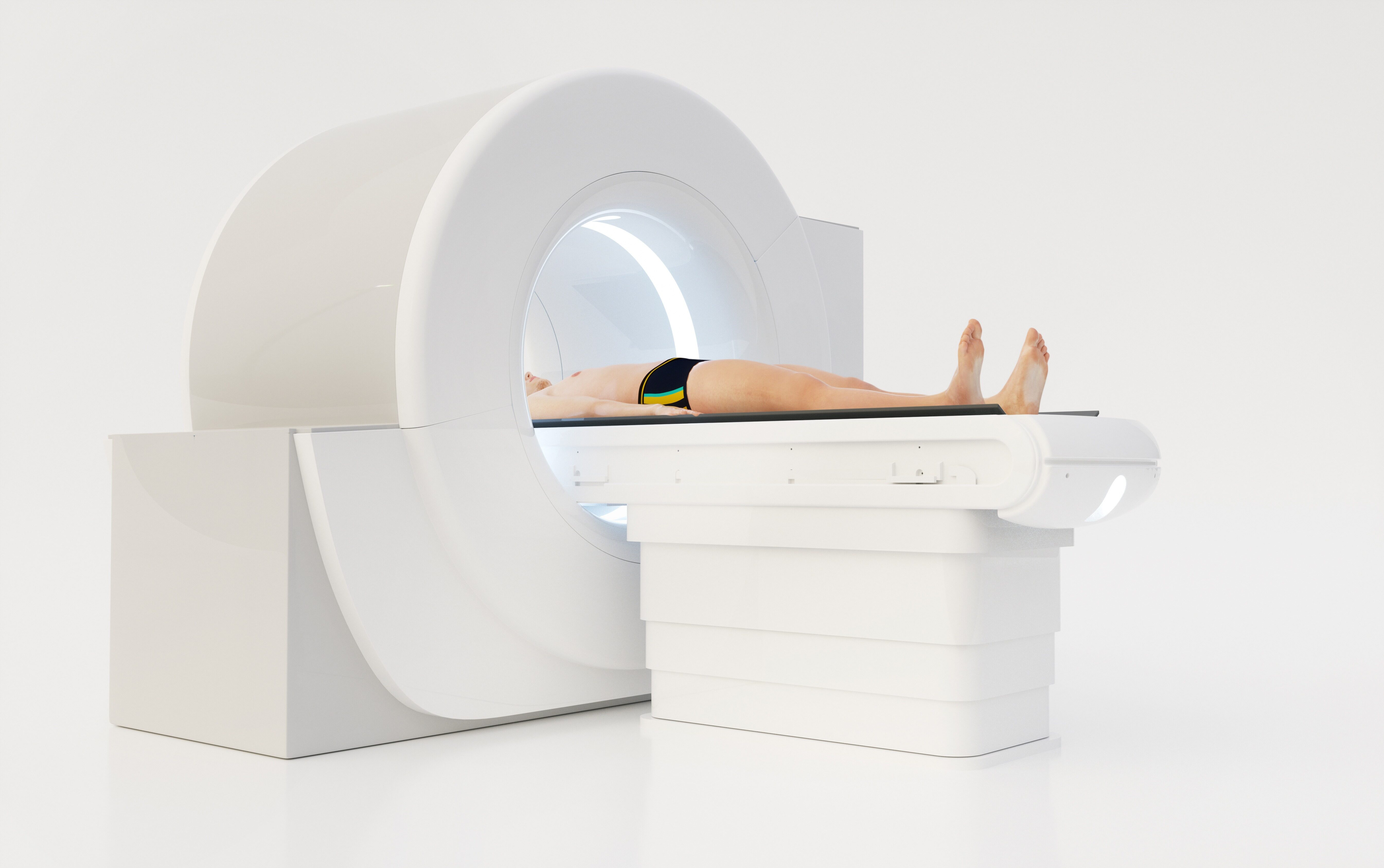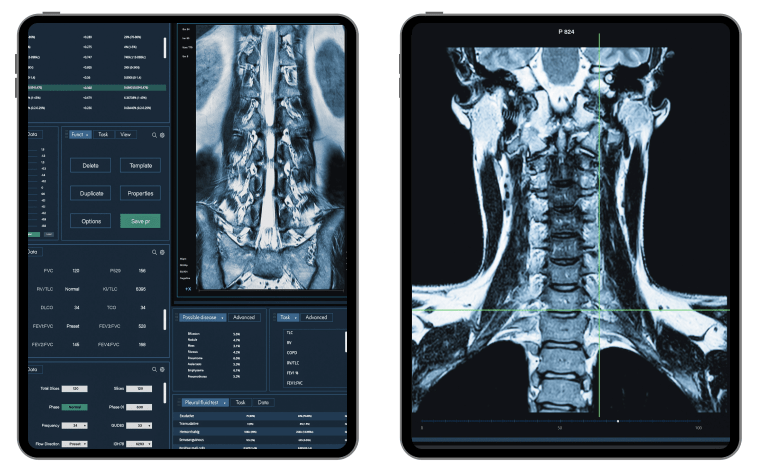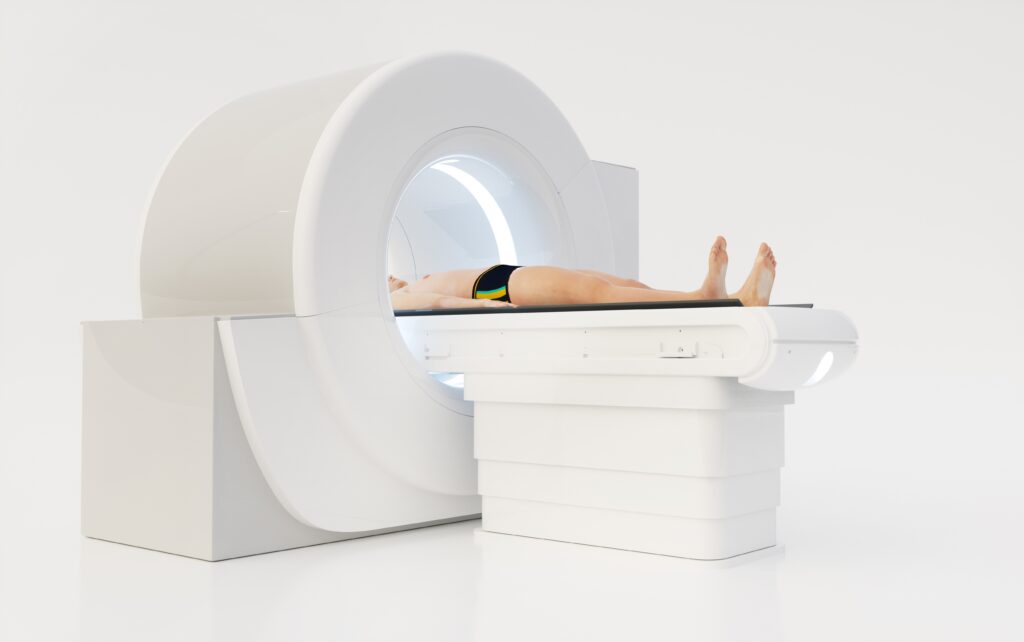Whole-Body MRI Scan: Is It Worth It?
Are you considering a whole-body MRI scan? Before you jump in with both feet into the scanner, it makes sense to understand the advantages and disadvantages of this comprehensive diagnostic method. With advancements in technology, the ability to examine the body’s deepest tissues has become more accessible than ever. This article carefully explores what you should consider before deciding to undergo a whole-body MRI scan.

What Is an MRI Scan?
An MRI scan (Magnetic Resonance Imaging) is one of the most commonly used types of scans in healthcare. However, there is a difference between an MRI scan and a whole-body MRI scan.
An MRI scan allows visualisation of different structures in the body. Unlike a CT scan or an X-ray, you are not exposed to radiation during an MRI scan, as the scanner works using a magnetic field and radio waves. An MRI scanner is used to visualise conditions such as dementia, stroke, inflammation, cancer, and muscle injuries, and the method is specifically designed to focus on one part of the body that needs further investigation.1Kim, S. J., & Kim, K. A. (2017). Safety issues and updates under MR environments. European Journal of Radiology, 89, 7–13.
A whole-body MRI scan, as the name suggests, is an MRI scan of the entire body. Such a scan takes about 60 minutes, during which you must lie still inside the MRI scanner. The purpose of a whole-body MRI scan is typically preventive, and it is mainly used in private healthcare to detect diseases and other conditions in the body at an early stage. The idea is that early detection allows for earlier treatment if something abnormal is found. If positive findings are discovered, meaning results that could indicate disease, follow-up examinations are usually conducted to determine whether the findings are serious or not.2Winfield, J. M., Blackledge, M. D., Tunariu, N., Koh, D. M., & Messiou, C. (2021). Whole-body MRI: A practical guide for imaging patients with malignant bone disease. Clinical Radiology, 76, 715–727.
Cancer Screening
The purpose of a whole-body MRI scan is to search for abnormal conditions throughout the body, which in some cases can contribute to the early diagnosis of potentially life-threatening cancer or other diseases, enabling effective treatment.
There are several stories from people who have had positive experiences with whole-body MRI scans. For example, American TV host and actress Maria Menounos shared that she was diagnosed with a pancreatic tumor as a result of a whole-body MRI scan. If this tumor had not been detected early, she likely would not have been cured. Unfortunately, Maria’s story is a rare case. When the entire body is scanned, any irregularity will be detected, which is not always an advantage.
Common to all types of scans (including MRI and CT) is that they can only visualise conditions that have manifested as cysts, tumors, etc. This means that early stages and precursors of diseases cannot be detected via MRI scans, especially not with a whole-body MRI scan, which has lower resolution because there is less time to capture the same number of images. Therefore, MRI and whole-body MRI scans are not suitable for screening for precursors and early stages of cancer that have not yet developed into visible tumors. Other forms of screening, including blood markers and liquid biopsies (cfDNA and ctDNA), are far more effective for this.
The Importance of Whole-Body MRI Scans as Part of Routine Health Checks
Several studies have examined the significance of whole-body scans in the general population. In a retrospective analysis of 229 patients (ages 37-73) who were screened with whole-body MRI as part of their routine health checks and cancer screening, two cases (0.8%) of malignant findings were identified. Additionally, there was a high incidence of incidental findings (47%), such as kidney and liver cysts, and other conditions that typically do not require active treatment. Researchers also found that older patients (≥52 years) had significantly more lesions per patient than younger ones (<52 years).4Lee, S. Y., Park, H. J., Kim, M. S., Rho, M. H., & Han, C. H. (2018). An initial experience with the use of whole body MRI for cancer screening and regular health checks. PLoS One, 13. .
In another study involving 2,500 patients (ages 21-88) who underwent a whole-body MRI scan, 9 cases (0.4%) required urgent action. Sixty-two findings (5.9%) were malignant, and 607 findings (57.7%) were unclear. Overall, 90% of the abnormalities found had no clear diagnostic or therapeutic consequences according to existing guidelines and recommendations, as well as anatomical variations among people.5Hegenscheid, K., et al. (2013). Potentially relevant incidental findings on research whole-body MRI in the general adult population: Frequencies and management. European Radiology, 23, 816–826.
A 2019 review, which looked at 12 different studies on the use of whole-body MRI in healthy individuals, reported true positive rates ranging from 0.9% to 100% and false positive rates ranging from 5.7% to 72.4%. This shows a great deal of uncertainty in the application of whole-body MRI scans. A false positive means that a person is mistakenly told they have a condition they do not have.6Kwee, R. M., & Kwee, T. C. (2019). Whole-body MRI for preventive health screening: A systematic review of the literature. Journal of Magnetic Resonance Imaging, 50, 1489–1503.
The literature generally indicates that only a small percentage of those who undergo a whole-body MRI scan are actually diagnosed early and accurately. It also shows that there is a relatively high likelihood of being diagnosed with something abnormal that may not be harmful or require intervention.
Whole-Body MRI Scans Are Unnecessary
According to Matthew S. Davenport, MD, 15%-30% of imaging in adults contains at least one incidental finding. These small abnormalities in the body are not something that will cause harm. As mentioned earlier, the purpose of a whole-body MRI scan is to identify everything that is abnormal. Since we are all different, most people will have certain abnormalities in the body, and many may even have small benign tumors that are not harmful or require further treatment. However, when such findings are discovered through a whole-body scan, they can lead to unnecessary interventions, which themselves carry risks, such as unnecessary surgeries with the risk of postoperative complications like infections. Thus, these findings can easily lead to overdiagnosis, unnecessary worry, and anxiety, and in the worst-case scenario, a decline in health.
Davenport himself says: “If you went into the scan feeling normal, but came out seeing all your incidental findings as problems, it would change your perception of your health. Now, your view of your quality of life has changed to something negative, when that may not be the case. This can be very stressful and anxiety-inducing for many patients.”7Davenport, M. S. (2023). Incidental findings and low-value care. American Journal of Roentgenology, 221, 117–123.
Cancerous tumors are an example of something you would want to be aware of in a whole-body MRI scan.
There are also people who are genetically predisposed to certain types of cancer, or those who already have multiple myeloma, prostate cancer, melanoma, and similar conditions, who may benefit from an MRI scan. However, in these cases, an MRI focused on specific areas would be optimal, not a whole-body MRI.
In most cases, it is not beneficial for healthy individuals to undergo a whole-body MRI scan, as the advantages do not outweigh the disadvantages.

Advantages of a Whole-Body MRI Scan
Non-invasive screening
No risk of radiation due to the use of radio waves
Possibility of early disease detection
Relatively quick examination of the entire body
Provides a comprehensive view of the body's condition
Disadvantages of a Whole-Body MRI Scan
Overdiagnosis, unnecessary worry, stress, and anxiety
Many false positives
May lead to unnecessary interventions, which carry risks of complications
Cannot diagnose precursors or very early stages of cancer
Can give a false sense of security if nothing is found
Low resolution, as the method is designed for smaller focused areas
High cost
Things to Consider Before Buying a Whole-Body MRI Scan
- Cost: A whole-body MRI scan in Denmark can be expensive.
- Purpose: Consider the purpose of the scan. Are there specific indications, symptoms, or risk factors that justify a whole-body scan?
- Health Condition: Do you have any existing health problems or prior diagnoses that could influence your decision to undergo a scan?
- Alternatives: Are there alternative treatments or screenings that are better suited to your purpose for the scan?
- Emotional Impact: Consider that something abnormal is likely to be found, which could affect your perception of your own health. This may lead to unnecessary worry and anxiety.
Should I Get a Whole-Body MRI Scan?
The answer to this question is unfortunately not a simple yes or no. As outlined in the article, opinions and experiences vary on the effectiveness and necessity of a whole-body MRI scan. As with many other things, you will always find arguments for and against, and it’s no different when it comes to whole-body MRI scans.
From an objective standpoint, there is no strong argument for undergoing a whole-body MRI scan, as the likelihood of finding a true positive result that would be beneficial to know about is very small. It can be easy to be misled by the fact that it is an expensive technological tool and therefore believe that it provides a complete assessment of your health. In most cases, blood tests and qualified medical advice would be a better investment of your money.
Where an MRI scan is valuable is when there is an indication, or rather, when you know what you are looking for. Then, you can focus on a smaller area, which will be scanned at a sufficiently high resolution. Put simply, you would need to lie still in an MRI scanner for up to 8 hours to achieve the same resolution for the whole body as with a normal MRI scan.
Ultimately, only you can make the final decision. You need to reflect on whether you are ready to potentially learn new things about your body, which could cause concern, but at the same time, it could also bring peace of mind if a disease is diagnosed early.
At Aetas, we currently do not recommend whole-body MRI scans unless there is a specific indication, such as a high risk of neurological disease. In such cases, we always opt for an MRI protocol that is specifically designed and focused on diagnosing what we are looking for – that is, a normal MRI and not a whole-body MRI.
Image recognition technology and AI are rapidly evolving, and our stance on this, like many other things, may change. But right now, we do not believe that MRI AI technology is sufficiently developed to responsibly recommend whole-body MRI scans without a specific indication.
How Can I Get Screened Broadly and Most Effectively for Cancer?
The answer is that it’s individual and depends on the type of cancer, family history, lifestyle, etc. In general, there is very strong data on a new technology called cfDNA or liquid biopsies, where microscopic cancer markers can be detected using an ultrasensitive DNA analysis. There is, for instance, an American test that screens for 50 types of cancer with a simple blood test and with relatively high precision. Since cancer is one of the most difficult diseases to diagnose, a combination of blood tests, physiological exams, imaging diagnostics, and specialist evaluation is used.
KEY TAKEAWAY
Whole-body MRI scans are a topic of debate, as their effectiveness and necessity are highly questionable. The decision to undergo such a scan should be made individually, as the benefits rarely outweigh the costs and the relatively low probability of finding meaningful results. It is important to consider alternatives and be prepared for emotional reactions if something abnormal is found. The final decision should be based on a personal assessment of risks and benefits, as well as one’s own health condition and risk factors.

LITTERATUR REFERENCER
3. Camero, K. (n.d.). Do you need a full-body MRI scan? Probably not, experts say.
Make your move
Optimise your health so that you live a longer and healthier life
Aetas is a clinic for precision medicine and molecular laboratory. We specialise in Longevity, evidence-based health optimization and preventive treatments.
Enquire Now







